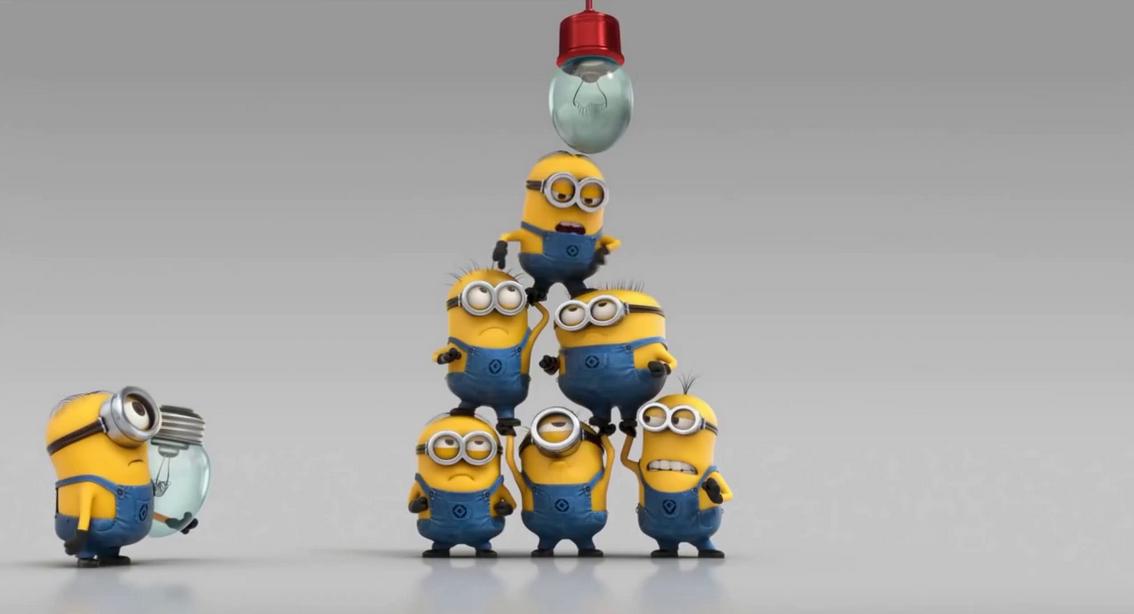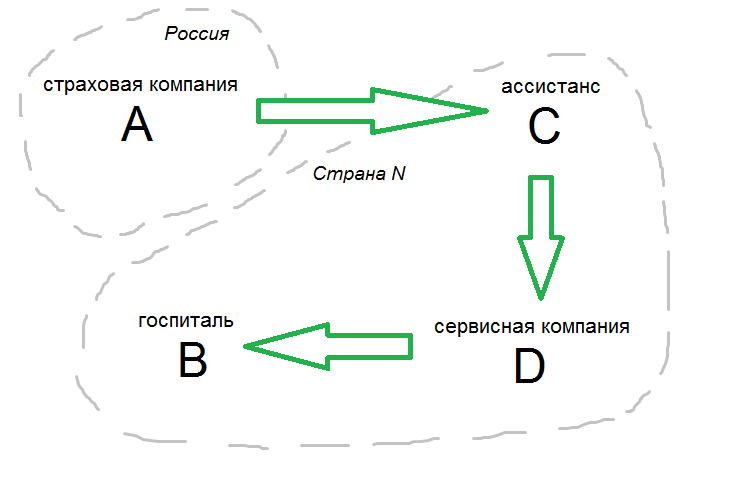Money as a measure of trust

Today I found an article on hard that I wrote in January, but for unknown reasons I forgot about it myself. All of the following are thoughts about the structure of the modern system of monetary relations between people, companies, and institutions. If you have
Recently, I often think about the structure of a modern monetary system. And I began to come up with interesting thoughts and concepts that I will try to share with you.
To begin with, what kind of monetary system seems to everyone. Money serves as a medium of exchange. Each product and each service has a certain market price. It can vary greatly depending on the place, time and circumstances, but nevertheless, almost any product and almost any service can be purchased for a finite amount of money. Each person in society can receive money for the work or services that he performs, for the sale of some of his resources, and so on. Everyone has certain savings - a certain amount of money in the wallet. He can buy goods and services for an amount that fits into the amount of money he has at the moment. This is what a society with commodity-money relations looks like in the base case, and approximately this is the structure of our society for most people. So would a society that uses only gold (or equivalent) to pay.
')
In the past century, a huge number of derivatives have been introduced into society. In particular: banknotes as a written commitment of the bank to pay the n-th amount in gold upon request; bank accounts; checks as a written order of the account holder to transfer money to another person; various types of loans. There were securities and stock exchanges. The loans themselves have become the object of trade - they can be bought and sold, they can expect a certain yield from them. Concepts such as futures and options appeared on the stock exchanges, such as obligations to make or agree to make a deal at a given price. And they, too, became the object of trade. And so on.
Organizations and individuals who work together often no longer require money from each other immediately to complete a transaction. Enough of their written (and some - and oral) commitment to pay money. Moreover, the payment of money looks like a transfer of numbers from one bank account to another bank account. In this case, the amount of cash in your hands may not change at all in the process. But it is believed that the money transferred.
The trust
This whole system works, in fact, on trust. Let me explain my thought with an example that I recently had to face.
There is insurance company A in Russia, which covers the costs of treating tourists with whom something happened in country N. There is hospital B in country N, which treats people for money. In country N there is also the so-called Assistance C - a company that works directly with hospitals and coordinates insurance A. Clients. At the same time, cooperation between Hospital B and Assistance C may or may not be available. In the second case, the fourth company D appears between them, it is called a service one. Service company D works with assistance C and with hospital B, so that, as a result, insurance company A can cover the entire treatment of its client in hospital B (or maybe not, ha ha).
There are many details that are irrelevant, but I want you to feel the role of trust in this system. So, we have 4 companies. When an insured event occurs and insurance client A wakes up in the emergency room of hospital B, the latter wants guarantees that the treatment will be covered by insurance. He receives these guarantees from service company D. Service company D regularly works with assistance C and waits only for an official letter from C stating that C will transfer the specified amount D. Assistance C is constantly working with insurance A, therefore only official consent to cover expenses in the specified amount is enough to transfer promises further down the chain.

The result is that A promises money C, C promises money D, and D promises money B, and this chain of promises is enough for B to provide a service to client A (he cured a person, which can cost a lot of money). Do you feel? The client receives a paid service in return for a long chain of promises of payment. This happens very quickly, although the money itself will eventually go a long way.
Or it can turn out the way it happened in our situation in practice. Assistance C owed money to the service company D, so their written promise alone is not enough for D to send a payment guarantee to the hospital. Now the whole chain is stuck due to the fact that Assistance C has low credibility. They do not seem to have this very fluid and quick form of "money". Therefore, everyone will have to wait until all the approvals and bank transfers are completed throughout the chain before Hospital B can be assured of payment.
Another example. You do some service and publish information about it. You have already established yourself as a successful entrepreneur with three start-ups that have been fired, so investors are already waiting for you to give you money. Or on the contrary, you are known as a start-up loser and have burned the budgets of already ten projects, without ever reaching a payback. In this case, getting money will be much more difficult.
Going lower still: you trust your friend Misha, so there’s no problem at all to give him 10 thousand in debt, he always returns on time. But you will not give a hundred to the drunk neighbor Kohl, because you know that he will not return.
You trust your bank, so you think that 50 thousand in your account is the money available to you, which you can receive at any time. You trust our state and the central bank, so use the rubles, expecting that they will not become candy wrappers.
What will happen next?
What picture emerges in the end? I will try to describe how I see the device to which the whole system is aiming.
Everything is built on the levels of trust, commitment and expectations. Modern money degenerates and becomes the “past century”, as gold once went out of circulation. Each person and each organization has a certain trust from other people and organizations. The wealth of a person A is determined not by the papers under the pillow and not by the numbers on the account, but by who and how much he trusts him. Paying for a product or service, he only in some form conveys the "promise of payment", his or someone else's, which he received from someone else. By benefiting, he receives such promises of payment from other people and can subsequently pay them off. Let's call them conditionally "credits", by analogy with all sorts of fiction and games.
Most likely, there will be several hundred fairly stable issuers of loans in the world who will be trusted everywhere. For example: Fed loans, Google loans, Apple loans, eBay loans. Less global organizations may have a local impact, for example, some Mavro loans may appear that will be accepted for payment in some regions of Russia, but not in the rest of the world. However, they will also be able to play the role of fast money on their territory for their audience. Or, for example, Federation loans, with which you can pay off on many planets in the Galaxy, but not on Tatooine.
But this is a fairly simple scheme, to which we are already so close. In fact, only state regulation of currencies at the level of laws keeps us from such a financial system of society. To create “money substitutes”, as we remember, is prohibited for the time being. If you go further and deeper, then you can come to something more interesting. For example: each person in a certain unified social network has its own loans. And each of them have one or another value and liquidity, depending on the financial relationship of this person with others. People can "minus" and "plus" the financial karma of each other, affecting the value and liquidity of each other's loans. Shops and all kinds of services integrate with this social and money network and accept payments by loans from people from this network.
Imagine in this case a situation where a certain Vasya was left without money, stuck in a foreign country, he had 100 rubles in his wallet (or 0.0000055 BTC, or even 0.5 Google credit on the account - in general, there is nothing). Do not need extra calls and gestures to go eat in a cafe or spend the night at the hotel. You simply pay with your social credits, while the system automatically sends a request of the type: “Does your friend Vasya ask for loans worth $ 100 to pay for the Hilton hotel in New York, lend?”. The request may be accompanied by conditions, comments, geo-tags, something else. As soon as Vasya receives consent from someone from the network, the payment is confirmed and he can go to the hotel with peace of mind, and he will return the loans later. And the hotel automatically exchanges loans from the network for a more stable currency on the exchange. Moreover, confirmation of such a loan can not be expected if Vasya has high karma in this network - the hotel can simply trust him for this or that amount. Well, in case of non-payment the hotel, of course, is insured. By the way, as I learned later, our hospital B is also insured in case of non-payment from its clients.
Ordinary people in this network can set up automatic loan issuing services on request, with white and black lists. All services that accept payments in loans are insured against the illiquidity of accepted loans and non-payment. Funds of ordinary people can be transferred to deposits of distributed insurance companies and credit organizations.
I admit honestly, I don’t have enough of my imagination to imagine all possible development prospects in a rich and detailed way. Therefore, I propose to speculate together. What do you think about this?
Source: https://habr.com/ru/post/240131/
All Articles